I have declared the following:
const int NUMBER_OF_DIGITS = 16;
std::vector<int> digits(NUMBER_OF_DIGITS);
However when I open the MSVC debugger it shows the following:

This is how I added values to the vector:
for (int i = 0; i < NUMBER_OF_DIGITS; ++i) {
scanf("%d", &digits[i]);
}
Is this normal? Can I just ignore this? Or is this a problem?
Full code(the program is still not ready yet):
#include <iostream>
#include <vector>
#include "stdio.h"
const int NUMBER_OF_DIGITS = 16;
int checksum, tmp1, tmp2, tmp3, sum = 0;
std::vector<int> digits(NUMBER_OF_DIGITS);
std::vector<int> new_digits(NUMBER_OF_DIGITS);
int luhn_checksum(std::vector<int> cardnumber[NUMBER_OF_DIGITS]) {
//step 1: duouble every second number
for (int i = 1; i < NUMBER_OF_DIGITS; i += 2) {
new_digits[i] = digits[i] * 2;
if (new_digits[i] > 9) {
//if the product is larger than 9 we will add the two numbers together
//example: 9 * 2 = 18 so we will add 1 + 8 to get 9
tmp1 += new_digits[i] % 10;
new_digits[i] /= 10;
tmp1 = 0;
}
}
//step 2: sum all the values
for (int i = 0; i < NUMBER_OF_DIGITS; ++i) {
checksum += new_digits[i];
}
return checksum;
}
void get_card_numbers(void) {
for (int i = 0; i < NUMBER_OF_DIGITS; ++i) {
scanf("%d", &digits[i]);
}
}
void initialize(void) {
for (int i = 0; i < NUMBER_OF_DIGITS; ++i) {
digits.push_back(0);
new_digits.push_back(0);
}
}
int main() {
initialize();
get_card_numbers();
printf("checksum is: %d\n", luhn_checksum(&digits));
std::cout << digits.size() << std::endl;
int x; scanf("%d", &x);
return 0;
}